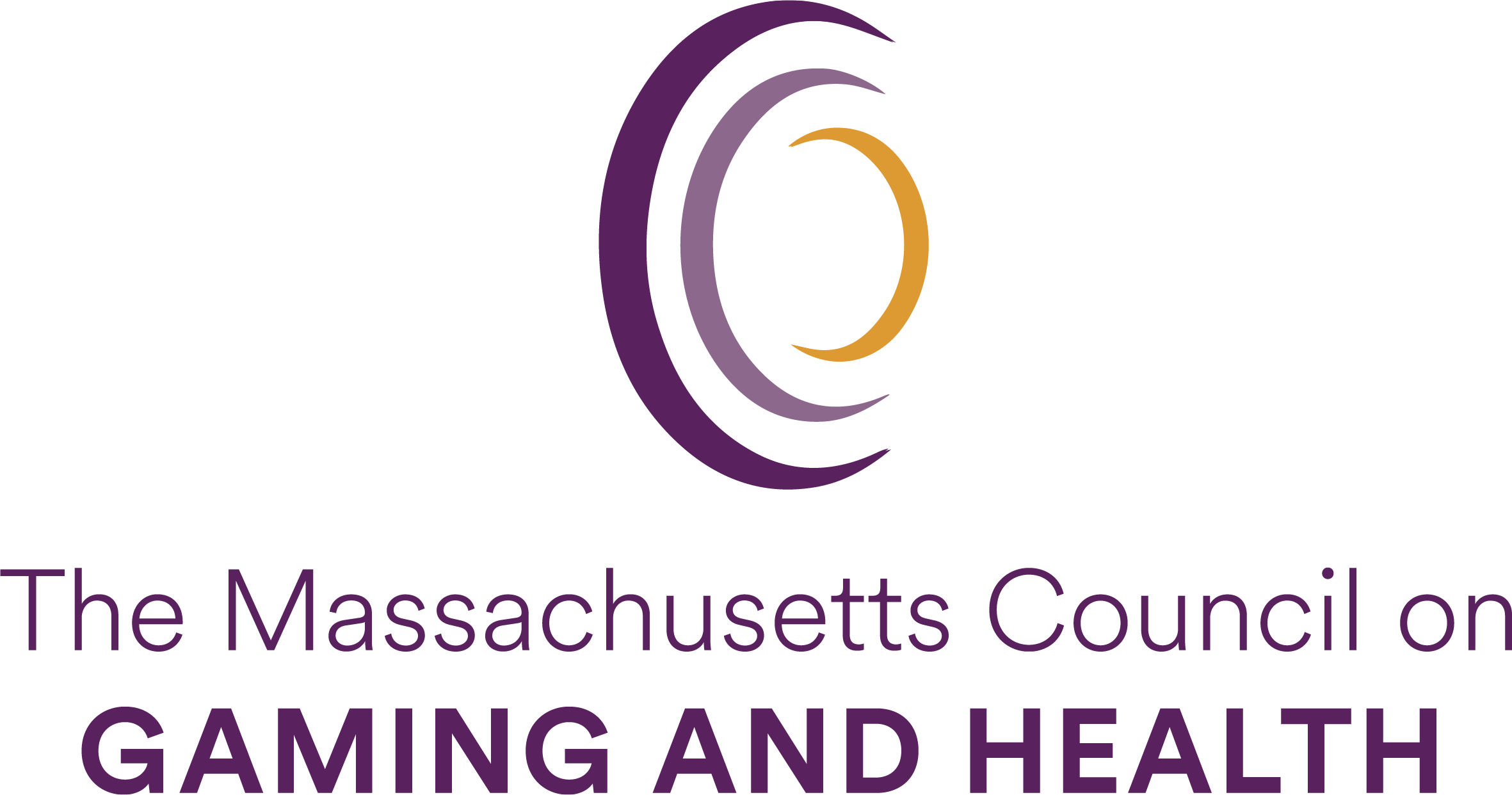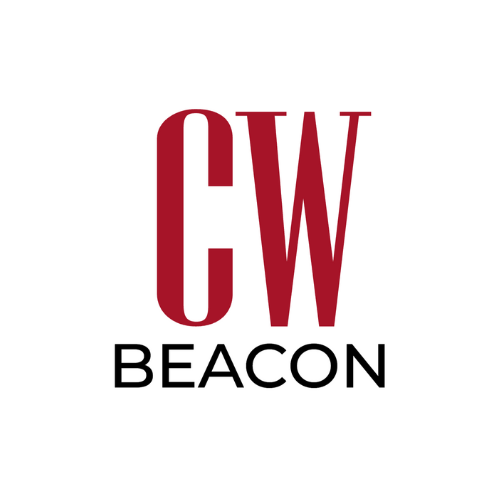by Jodie Nealley, Intervention and Recovery Support Coordinator, Massachusetts Council on Compulsive Gambling and Amanda Poggenburg, Prevention Specialist
“Between stimulus and response there is a space. In that space is our power to choose our response. In our response lies our growth and freedom.” Viktor Frankl (1946)
Human beings are not all the same. This realization, of course, is nothing new, but it is good to keep in mind when thinking of treatment for those afflicted with gambling disorders. The MA Council’s 24/7 Helpline Specialists generally recommend a combination of one-on-one counseling, either in an Outpatient setting or with a private practitioner trained in gambling disorders, AND a group setting, either a group therapy meeting (Thursday nights at Mt Auburn Hospital in Cambridge) or a group such as Gamblers Anonymous, Bettors Anonymous, or Smart Recovery.
This combination has proven to be successful for many individuals recovering from a gambling problem; however, we are all different and how we get better differs from person to person.
Self-directed treatments have been developed and found effective. These treatments provide individuals with information and support to initiate a recovery program without attending formal treatment. Self-directed therapies can be successful with the right approach.Online counseling, also known as eTherapy, is starting to become available. Research is one of the reasons for the increase in this area. One study in Sweden investigated the success of a therapist-assisted web-based cognitive-behavioral program. “Compared with pathological gamblers on a waitlist, participants receiving the intervention had better gambling outcomes at three months. These gains were maintained over a 36 month follow-up interval. ” [Hodgins, D., Fick, G., Murray, R., & Cunningham, J. (n.d.). Internet-based interventions for disordered gamblers: Study protocol for a randomized controlled trial of online self-directed cognitive-behavioural motivational therapy. BMC Public Health, 10-10.]
Although there is not a great deal of research on alternative approaches to recovery from a gambling disorder, here are a few that have been successful in the Substance Abuse field (an excellent source for learning more about these therapies is the Addiction Recovery Guide website).
Alternative and Complementary Approaches to Recovery can include:
Acupuncture
Acupuncture is a part of East Asian medicine developed in China over 2,500 years ago and currently practiced throughout Asia, Europe and the United States. Acupuncture helps identify stress details that may be related to the addictive behavior and can help these problem areas. According to Chinese medicine theory, the human body contains a network of energy pathways through which vital energy, called “chi”, circulates. These pathways contain specific points that function like gates, allowing chi to flow through the body. Needles are inserted into these points to regulate the flow of chi and stimulate healing.
Animal/Pet Therapy
Pet therapy is being used to help those with a variety of illnesses. Some of the physical and psychological benefits seen in patients when they interact with animals include: lowered blood pressure and heart rate, increased beta-endorphin levels (a hormone produced by the brain and nervous system that reduces pain), decreased stress levels, reduced feelings of anger, hostility, tension and anxiety, improved social functioning, and increased feelings of empowerment, trust, patience and self-esteem. During the beginning of my recover, I cried often into the sweet fur of my dog. She was always there- unjudging, constant, and loving. She helped me ride that wave of despair – that moment – so I could be stronger in the next.
Aromatherapy
Aromatherapy makes use of your olfactory senses to increase well-being. It uses oils extracted from plants and herbs that can be inhaled or applied through the skin, each scent serving a different purpose: chamomile for anger relief, lavender and peach to relieve anxiety, sandalwood to increase confidence, lemon to help ease depression. Clinical studies have shown these oils to have positive effects on the mind and the body. Some typical ways to make use of aromatherapy can be through the use of bath oils, lotions or creams, vapor inhalation, a massage, or even with a compress.
Expressive (or creative arts) therapies, such as coloring therapy, music therapy, and Zentangles
Creative therapies can be helpful in the process of recovery from addiction because they offer the opportunity to get in touch with the inner self and with a higher power. They can provide a form of expression for feelings that cannot be easily identified or put into words. Expressive therapies can help those struggling with addiction to connect with his/her more authentic self. Coloring therapy uses light and colors as healing agents. Not unlike scents, colors all also have their own purpose: green is seen as the most healing color, representing Spring and new growth as well as being a grounding color; yellow is uplifting, providing warmth and optimism; red is the color of confidence and power; and blue provides serenity and calm. 1
Music therapy can involve listening, dancing, playing an instrument, or singing. Different forms are more effective for some than others, but, again, it differs for each individual. Music can be meditative for the listener, lowering stress levels and blood pressure, helping the listener deal better with anxiety. Music with a fast beat can help concentration levels increase. It can help you feel less lonely.2
Zentangles are a form of meditative drawing. You can create beautiful pieces of art through the use of repetitive patterns and coloring. It helps increase focus, creativity, and self-expression. Here is a previous blog that explains how Zentangles can be used as a recovery tool: Using Zentangles in Recovery.
Expressive therapies can help raise self-esteem and provide an opportunity to create new experiences and beautiful art beyond habitual and painful emotional patterns. The creative arts foster a renewed ability to relax without gambling or other addictions.
Homeopathy
Homeopathy is the belief on treating like with like. It is a non-toxic system of medicine using highly-diluted medicines to treat illness and relieve discomfort in a wide variety of health conditions. It seeks to treat the whole person. Homeopathy provides individualized remedies. For example, if you have a headache, instead of taking acetaminophen, you will determine a homeopathic remedy based on the type of pain, location, sound of cough, what started it, etc.3 It is thought that homeopathic remedies are able to stimulate a person’s bodily systems to deal with stress and illness more efficiently.
Treatment of Gambling Addiction
Homeopathic Treatment of Gambling Addiction
Homeopathy can play a fundamental role in treating addiction. Constitutional homeopathic treatment will act skillfully on your inherent nature, molding and harmonizing your self-energy to control the life situations. It will help build motivation to resist Addictions, replace addictive activities with positive and rewarding behaviors
http://www.ethosbodyandmindclinic.com/gambling-addiction/
Hypnosis
Hypnosis is a calm state of focused attention which can be produced by the self or a therapist. It leaves the patient in a trance-like state during which he / she is more susceptible to suggestions. It helps the person set goals, reinforcing these goals and how to accomplish them. Some people have found hypnosis to be a useful part of a total recovery program.
Journaling
Writing in a personal journal is an excellent tool for self-reflection, charting your progress, recording your daily experiences and thoughts, and identifying your goals, habit patterns, conflicts, and gratitude. It can help you express your thoughts and explore and clarify any issues you may be dealing with in a private way. Writing in a personal journal can be very freeing. You can write things you might not be able to express elsewhere. It can help get your thoughts in order.
Massage and Bodywork
Massage and bodywork address the mind/body/spirit, offering the possibility of healing and change on many levels. On a physical level, it can facilitate the release of tension and improve energy balance and flow. It also offers the opportunity to explore deeper levels of relaxation and peace, greater self-acceptance and awareness, and a deeper connection to self and others.
Nutrition
In dealing with the chemical imbalances that are both a cause of substance abuse and a result of long-term substance addiction, nutritional therapy can be helpful in several ways. Eating properly means receiving nutrients that give you energy, heal your body, and increase your immune response.4
Yoga
Yoga is a technique that allows you to enter a meditative state through monitoring your breathing and moving your body with purpose. It increases flexibility and strength while giving an environment well suited to calming the mind. It can improve concentration and promote patience as well as contribute to a greater sense of control in more acute states when experiencing cravings, insomnia, agitation, etc. Regular practice is needed to fully experience these benefits.
1 – http://healing.about.com/cs/colortherapy/a/aa_colortherapy.htm
2 – http://alcoholrehab.com/addiction-recovery/music-therapy-in-addiction-recovery/
3 – http://www.abchomeopathy.com/scientific.htm
Mindfulness
One of the growing alternative therapies in the recovery field is the concept of mindfulness- based relapse prevention and recovery.
Mindfulness –Based Relapse Prevention for Additive Behaviors: A Clinician’s Guide and Mindful Recovery: a Spiritual Path to Healing from Addiction.
The concept of mindfulness, although not put into those words, started in many ways with Bill W, the co-founder of AA. The ‘one day at a time’ mantra that GA and most 12-step programs use stems from mindfulness. It involves living in the day and being aware of the moment and only that moment. Choosing recovery in that moment and the next hour and the next day is a way to build a non-gambling lifestyle.
Mindfulness –Based Relapse Prevention for Additive Behaviors: A Clinician’s Guide says in its preface:
“Mindfulness-Based Relapse Prevention (MBRP) is a program integrating mindfulness meditation practices with traditional relapse prevention. Tradition Relapse Prevention is a cognitive behavioral intervention designed to help prevent or manage relapse prevention…Similarly, MBRP is designed as an outpatient aftercare program to support maintenance of treatment gains and to foster a sustainable lifestyle for individuals in recovery.” (p. vii)
The Viktor Frankl quote at the beginning of this blog is the essence of mindfulness. Mindful practice increases ones awareness of that space – that heartbeat between seeing something you want and your response to it – and creates the opportunity to respond skillfully and with a healthier outcome than to react automatically or out of habit.
The Mindfulness-Based Relapse Prevention program helps to bring the practice of mindful awareness to those suffering from the addictive nature of their mind. The program is designed to foster increased awareness of triggers, habitual patterns, and the automatic reactions that those with addiction display.
“These practices cultivate the ability to pause, observe present experience and bring awareness to the range of choices before each of us in every moment. Ultimately we are working toward freedom from deeply engrained and often catastrophic habitual patterns of thoughts and behavior.” (p. 1)
Mindfulness –Based Relapse Prevention for Additive Behaviors: A Clinician’s Guide can help clinicians interested in a mindfulness based approach learn how to incorporate it into their practice. However the book itself is useful to anyone interested in pursuing mindful practice.
Ultimate Guide to Mindfulness and Addiction explains “Mindfulness takes a different approach to traditional CBT. Mindfulness attempts to uncouple the link between cravings and drug/alcohol use, and tries to prevent the craving from arising in the first place. Mindfulness promotes self-regulation of attention so that it is maintained on an immediate experience, thereby allowing for increased recognition of mental events in the present moment.”
Mindful Recovery: a Spiritual Path to Healing from Addiction is not a clinical guide. This book outlines what it calls the Ten Doorways to Mindfulness. In brief, they are:
- Return to the present
- Consider your life as a story you are still writing
- Use journaling to deepen awareness of your life story and open the door to spiritual awakening
- Practice mediation to become more accepting of yourself and your life
- Find ways to connect with the natural world
- Cultivate healthy relationships to discourage addiction
- Explore dreams to expand your view of who you are beyond the limited point of view of your conscious, rational self
- Practice mindfulness at work
- Learn to hold and embrace difficult emotions to ensure successful recovery
- Practice, practice, practice;
I have found in my own recovery that, while I have not walked through these ten doorways consciously, I have used all of these. In the previous two blogs, I wrote about finding alternate activities, walking, writing, connecting with others, and finding quiet time each day. Again, how we fill the moment between stimulus – the craving – and the response -gambling – is key.
At the root of all therapy is the desire to stop being ruled by your addiction. The Latin root for the word addiction is dictator, a ruler with total power over something (a country), typically one who has obtained power by force. Much like its root, the addiction will rule, unless one develops ways, both traditional (One on One counseling and 12 Step programs) and alternative, to stop it.
Your recovery toolbox can be as large as you need it to be. There is no one way – whatever works is what will be the most successful and a good tool to add to an already existing recovery plan.
The Massachusetts Council on Gaming and Health offers a 24/7 Helpline: 1-800-426-1234.You can call us 24-hours a day or use our online chat service at: www.masscompulsivegambling.org
Someone will always be there to listen to you and to refer you to the resources near where you live.
Bibliography
Bien, T., & Bien, B. (2002). Mindful recovery: A spiritual path to healing from addiction. New York: J. Wiley & Sons.
Bowen, S., & Chawla, N. (2011). Mindfulness-based relapse prevention for addictive behaviors a clinician’s guide. New York: Guilford Press.
Hodgins, D., Fick, G., Murray, R., & Cunningham, J. (n.d.). Internet-based interventions for disordered gamblers: Study protocol for a randomized controlled trial of online self-directed cognitive-behavioural motivational therapy. BMC Public Health, 10-10.
Web links from this blog
http://www.addictionrecoveryguide.org/holistic/
Useful links:
www.masscompulsivegambling.org
http://www.gamblersanonymous.org/ga/
http://www.bettorsanonymous.org/
http://www.debtorsanonymous.org/
http://compulsivegamblers.gotop100.com/index.php
For Loved Ones
Suggested Books
Berman, Linda, and Mary Ellen Siegel. Behind the 8-Ball: A Guide for Families of Gamblers.
New York: Kaleidoscope Software, Inc., 1998.
Davis, Diane R. Taking Back Your Life: Women and Problem Gambling. Center City, MN: Hazelden, 2009
Dodes, Lance M. The Heart of Addiction. New York: HarperCollins, 2002
Lancelot, Marilyn. Gripped by Gambling. AZ: Wheatmark, 2007.
Lee, Bill. Born to Lose: Memoirs of a Compulsive Gambler. Center City, MN: Hazelden, 5/17/05.
Shaffer, Howard with Martin, Ryan Kleschinsky, John and Neporent, Liz.
Change Your Gambling, Change Your Life: Strategies for Managing Your Gambling and Improving Your Finances, Relationships, and Health. San Francisco, CA: Jossey-Bass 2012




